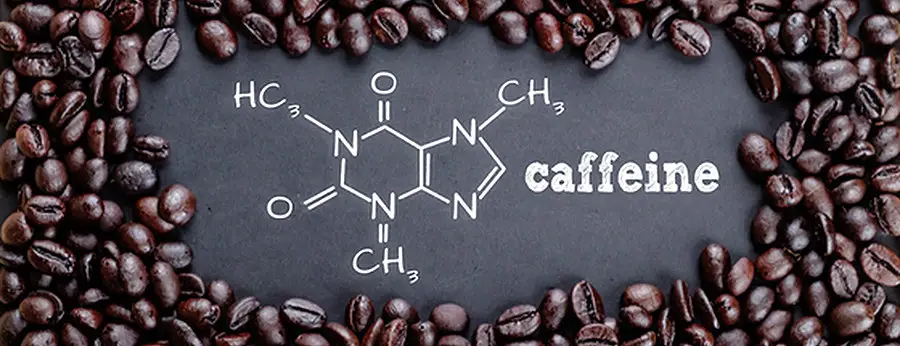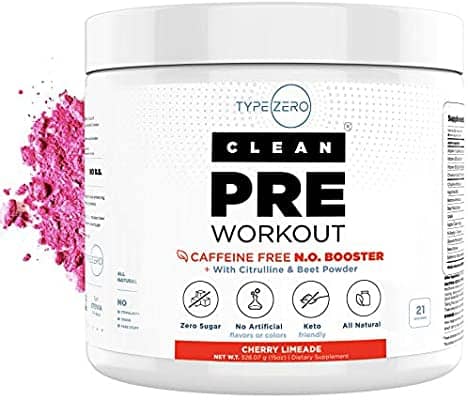
You’ve probably heard all about the dangers and risks of pre-workouts. One of the most problematic contents of pre-workouts is caffeine. Too much of it in a day can lead to negative consequences. Thus, here comes caffeine-free pre-workouts. But there are still questions on the legitimacy of caffeine-free pre-workouts.
Caffeine-free pre-workout eliminates one of the riskiest components: caffeine. But it does not necessarily remove many others such as excessive sugar, emulsifiers, and unnecessary preservatives. Make sure to check the ingredients list first to ensure that you do not ingest anything potentially harmful (within reason).
Caffeine is pretty much part of most of our lives. The regular working adult usually needs a cup of coffee to start their day. The stories of caffeine causing jitters and heart palpitations are not new to us. Why exactly that is will be discussed later on in the article. Why is it that companies push to create pre-workouts that are caffeine-free? And even if they are caffeine-free, does that guarantee that they are good for you?
The answer to that varies because there are no set ingredients for pre-workouts. Some contain more sugar or preservatives than others. Some may largely contain just one major ingredient more than any other in the mix. Before you can answer whether caffeine-free pre-workouts are bad for you, you need to know what is inside your pre-workout in the first place.

What Makes Pre-Workouts So Great? Why Are They Bad for You?
While there are many warnings out there for pre-workouts, they certainly still have some benefits. The biggest one is also the one that the entire pre-workout thing advertises: more energy. Pre-workouts can give you that extra boost of energy when you are feeling sluggish before your workout. It helps you reach your workout goals at the end of the day. All those things are true to some extent.
However, there are also cases when you might experience an energy crash right after working out. If you work out for the health benefits, you don’t want to feel immediately drained right after. The reason why energy crashes happen is because of certain ingredients in pre-workouts. Caffeine is an excellent example. Too much of it, and you’ll become dependent on caffeine, and the effects will start to wear off.
There are also a lot of sugars that you can find in many pre-workouts. These excess sugars and preservatives are not good for you. They will cause the opposite of what you want in a pre-workout. While they may give you a boost, the effects are only temporary, and the resulting crash makes it not worth it.
Of course, you can avoid those by being cautious in picking the right pre-workout for you. There are so many different kinds of pre-workout out there that it can become overwhelming. But choosing the perfect one for you is essential in getting the effect that you want.
As an additional note, pre-workouts are not FDA regulated. Most supplements are not FDA approved. This lack of regulation does not mean that they are entirely bad for you. It just means that there is no guarantee by a regulating body that they work or are safe for you. It is an added layer of risk you would have to take if you are interested in pre-workouts. They aren’t necessarily all bad. But they require vigilance and meticulous attention, so you know what kinds are safe and which bear a lot of risks.
Why Are Caffeine-Free Pre-Workouts a Thing?

The emergence of caffeine-free pre-workouts is largely because of the need for a substitute for caffeine. Since most people already take in some caffeine amount, adding more via pre-workout can be harmful. A cup of coffee will only have 95-100mg of caffeine, whereas a serving of pre-workout could have up to 500mg. The goal of high caffeine content is to give you more energy.
But is the energy from a high caffeine content worth the trouble? Some people don’t seem to think so. Hence, the appearance of caffeine-free pre-workouts that cater to a different crowd. If you are one of the people who can tolerate caffeine without a problem, then maybe you will not have an issue with the caffeine content.
But ideally, no one should take caffeine in large amounts. Did you know that the most used psychoactive drug in the world is caffeine? (Temple et al., 2017). There are so many sources of caffeine that you probably consume regularly. Natural sources include chocolate, tea, and yes, coffee. Caffeine is snuck into beverages like diet coke and other soft drinks. For adults, the safe level of caffeine intake is around 400mg a day (Verster et al., 2017)
While there will be pre-workouts that are well within those limits, some go above. People who are wary about their caffeine intake avoid those kinds of pre-workout. And in the end, they should go for the caffeine-free version.
The problem with caffeine is that the way it gives you energy is by literally stressing you out. Your blood sugar spikes, cortisol and adrenaline go up, and you’re ready to perform. In caveman times, this would only occur once in a while, like if a tiger tried to eat you. Nowadays, we can get the same effect from coffee every day or multiple times a day. This leads to an increase in chronic stress, which is a precursor for almost every disease.

What Ingredients Should I Look Out for in Pre-Workouts?
We already know the risks of caffeine. This list will focus on ingredients other than caffeine that can be unhealthy or harmful in certain amounts.
Artificial Sweeteners
Many pre-workouts contain artificial sweeteners that could be detrimental to health if consumed in large amounts. Some even have sugar alcohols instead of traditional sugar. These ingredients are generally safe in respectable amounts. But they may not sit well in some people’s stomachs. If your stomach gets upset due to artificial sweeteners, then you should avoid pre-workouts that have them.
If you can tolerate pre-workouts but not in large amounts, just adjust your dosage for pre-workouts.
Fat
Extra fat before your workout is not great. While fat has applications in how it helps with protein absorption and blood sugar regulation, it’s not the greatest before a workout. You may want to avoid it since it could hamper the effects you want to achieve with a postworkout, such as increasing blood flow.
Certain Amino Acids
Citrulline and beta-alanine are some amino acids that are common in pre-workouts. While they are there for a reason, they can also cause minor side effects.
Citrulline is supposed to help with blood flow during your workout, which translates to better muscle building. Thus, it’s an amino acid that is in many pre-workout supplements. However, citrulline can also cause headaches due to changes in blood pressure. Of course, it may not happen to everybody. But it is helpful to be on the lookout.
Beta-alanine helps reduce muscle acidity during workouts. In effect, you’ll be able to do your workout longer than you would without it. This effect is what you would want in a pre-workout. But the amino acid could cause minor tingling sensations that you may find troublesome and may get in the way of your workout.
The ingredients listed above are not necessarily bad. But looking out for them and paying attention to their effects will help you find a pre-workout that suits you best.
Is Caffeine-Free Pre-Workout Bad for You?
Caffeine-free pre-workout is not necessarily bad for you, and the basic assumption should not be that it is. Since caffeine-free pre-workout is already void of caffeine, that’s one less thing you have to worry about. Just make sure that you use a pre-workout that does not contain too much of the previous section’s ingredients.
An additional security level would be to consult with your doctor to see if there are any additional components you should watch out for. Since the supplement you’ll be taking is not FDA approved, a professional’s advice about it will be helpful.

